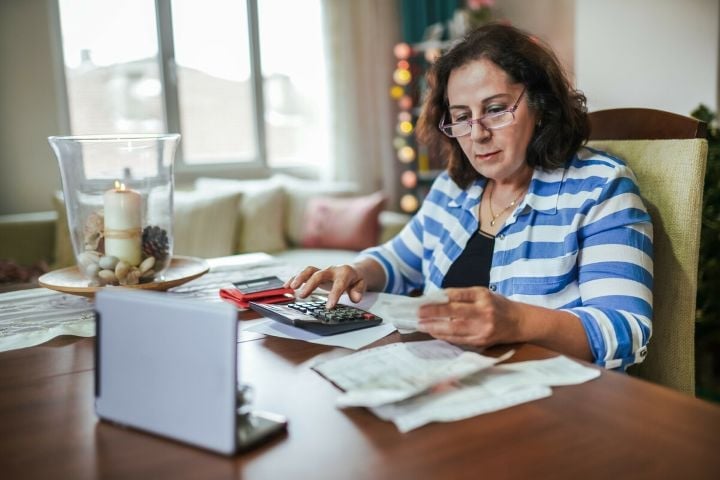Struggling with Debt? Here’s What You Can Do

Published on 23 July 2025 09:34 AM
It may feel difficult to seek help for debt, but you are not alone and there are many organisations that can support you. No matter what your situation is.
When should I seek help for debt?
It's a good idea to seek help if you are…
- Worrying about money
- Relying on an overdraft or credit card to scrape by
- Finding it hard to pay bills or paying them with credit
- Hiding spending habits
- Missing credit card repayments
- Avoiding letters or calls from those you owe money to
For free, confidential support for benefits or debt issues you can contact the East Sussex welfare benefits helpline
What should I do if I know someone who is struggling with debt?
If a family member or friend is experiencing financial strain they may be…
- Hiding post
- Being secretive about their spending
- Avoiding activities they used to enjoy
- Asking to borrow money
- Getting calls from unknown callers
If you're concerned about a loved one, encourage them to seek help. While the decision is ultimately theirs, your support and willingness to listen can make a meaningful difference.
Who can I contact for further information and advice?
Local support:
East Sussex County Council Money help and advice webpage - lists various local support and contacts for money-related issues
East Sussex 1space - directory of organisations that offer a range of advice and support
National support:
StepChange Debt Charity - offers advice by phone (0800 138 1111) or online via the Debt Remedy tool. They provide personalised action plans and suggest solutions for managing debt
National Debtline - offers free advice by phone (0808 808 4000), online, and by email. They can also provide a self-help information pack
Shelter - offers advice on housing and homelessness, including support with managing debt, rent or mortgage arrears, and the risk of eviction or repossession
Debt Advice Foundation - provides support through a helpline (0800 043 40 50) and online
Advice UK - helps you find free independent debt and money advice
Citizens Advice - offers debt help and advice – face to face, or by telephone or email
What support can I get from a debt adviser?
A debt adviser can help you create a budget and repayment plan, or suggest alternative solutions if repayment isn’t possible. They’ll explain your options and support you in taking the next steps.
If you're facing an emergency, such as eviction, let the adviser know. They may be able to offer a priority appointment or help you access urgent advice by phone or online.
If any of your debts are Consumer Credit Act debts (such as a credit card or a loan with interest), you'll need an adviser who's registered with the Financial Conduct Authority (FCA).
Appointments vary depending on which debt advice service you use. But it's likely that your adviser will:
- Ask about your debts and your creditors
- Ask questions about your circumstances – such as whether you own your home
- Ask about your income and your outgoings
- Carry out a benefits check to make sure you’re claiming all the money you’re entitled to
Once they understand your situation and budget, they’ll explain your options and help you decide on the next steps.
How do I prepare for my debt advice appointment?
Before the appointment, you should make a list of who you owe money to, and try to work out the total.
On the day of the appointment, try and make sure you have the following documents to hand…
- Bank statements for the past 3 months
- Benefit letters or other proof of income
- Information on how old your debts are
- Any letters or demands from your creditors
- A pen and paper to take notes
You should tell the adviser about all your debts, even if you are managing some. It is important to tell the adviser if…
- The debts belonged to a spouse, partner or civil partner who’s died
- The debts came from signing an agreement or loan document you didn’t properly understand.
Which debts should I pay off first?
Ensure you are paying your ‘priority debts.’ These are debts that would have serious consequences if unpaid, such as your mortgage.
Other priority debts include:
- Mortgage
- Second mortgage or secured loan
- Rent
- Council Tax
- Gas
- Electricity
- TV licence
- Magistrates Court Fines
- Hire purchase
- Telephone
Non priority debts include:
- Water
- Catalogue debts
- Credit cards
- Unsecured personal loans
- Money loaned from friends or family
Be open with your debt adviser, so they can help you prioritise.
Will my energy be cut off if I can’t pay my gas or electricity bills?
If you don’t pay your gas or electricity bill within 28 days, your supply could be disconnected. However, the energy company must send you a warning notice before this happens.
DID YOU KNOW?
If everyone in your home is over State Pension age, they can’t cut off your energy supply between 1 October and 31 March.
Your supplier should take steps to avoid cutting off your energy supply over the winter months if anyone in your house is over state pension age.
If you're struggling to pay your gas or electricity bills, contact your supplier as soon as possible. They may offer a payment plan or the option to install a prepayment meter.
Click here for advice if you're struggling to pay your energy bills.
What if I’m being pressured by creditors, bailiffs, or debt collectors?
Know your rights when dealing with creditors. If they contact you before your advice appointment, let them know you're seeking help—they should give you breathing space. If the pressure continues, speak to your debt adviser for guidance.
You should be aware of these rules:
- Creditors can’t call you at unreasonable times, take payments without your permission, or add unreasonable charges.
- In England and Wales, bailiffs (also called enforcement agents) from the County Court or local council must give at least seven days’ notice before their first visit, and you are not required to let them in without notice. However, High Court enforcement officers are not required to provide prior notice.
- Debt collectors can’t force entry to your house, take anything from it, or demand cash payments from you.
- Energy suppliers can’t disconnect you without notice.
Want more information?
Getting help with debt information guide (PDF)
Looking after your money information guide (PDF)
